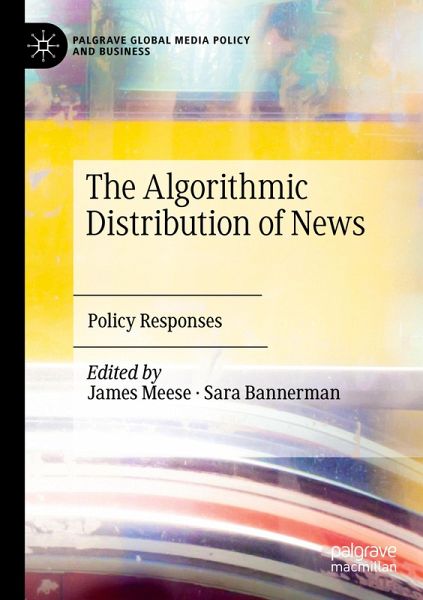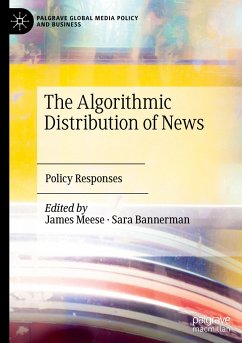
The Algorithmic Distribution of News
Policy Responses
Herausgegeben: Meese, James; Bannerman, Sara
Versandkostenfrei!
Versandfertig in 6-10 Tagen
98,99 €
inkl. MwSt.

PAYBACK Punkte
49 °P sammeln!
This volume explores how governments, policymakers and newsrooms have responded to the algorithmic distribution of the news. Contributors analyse the ongoing battle between platforms and publishers, evaluate recent attempts to manage these tensions through policy reform and consider whether algorithms can be regulated to promote media diversity and stop misinformation and hate speech. Chapter authors also interview journalists and find out how their work is changing due to the growing importance of algorithmic systems. Drawing together an international group of scholars, the book takes a truly...
This volume explores how governments, policymakers and newsrooms have responded to the algorithmic distribution of the news. Contributors analyse the ongoing battle between platforms and publishers, evaluate recent attempts to manage these tensions through policy reform and consider whether algorithms can be regulated to promote media diversity and stop misinformation and hate speech. Chapter authors also interview journalists and find out how their work is changing due to the growing importance of algorithmic systems. Drawing together an international group of scholars, the book takes a truly global perspective offering case studies from Switzerland, Germany, Kenya, New Zealand, Canada, Australia, and China. The collection also provides a series of critical analyses of recent policy developments in the European Union and Australia, which aim to provide a more secure revenue base for news media organisations. A valuable resource for journalism and policy scholars and students, Governing the Algorithmic Distribution of News is an important guide for anyone hoping to understand the central regulatory issues surrounding the online distribution of news.














